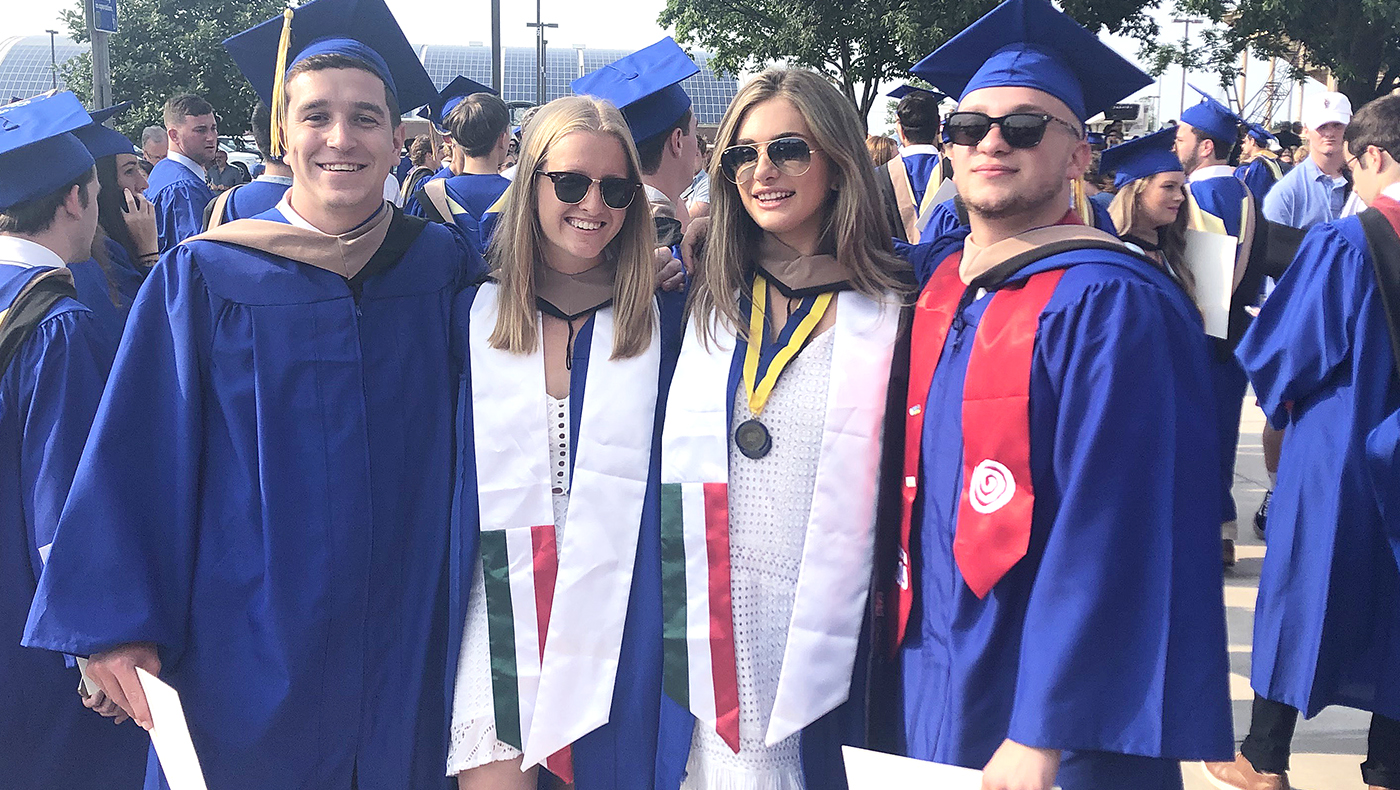As University of Delaware management information systems (MIS) alumna Kaitlyn McConeghy said, for students who haven’t yet begun their careers, “It isn’t always as easy to visualize how you’ll be helping people throughout your day-to-day.” But one project, McConeghy said, helped her and her MIS classmates to see the powerful impact their work can have in the community.
As part of an MIS capstone course requirement, McConeghy and her classmates worked as a team to help local nonprofit Nehemiah Gateway Community Development Corporation (NGCDC). The organization provides access to financial education and services for low-to-moderate income individuals, including working with UD accounting students to provide underserved Delawareans with free tax preparation services.
Clinton E. (Skip) White, Jr., a professor of MIS at UD’s Alfred Lerner College of Business and Economics, explained that NGCDC was frustrated with the quality of their volunteer management system. For a nonprofit that relies heavily on volunteers, White said, this technology is absolutely essential.
In fact, according to Maisha Thoms, who served as tax campaign director and EITC coalition lead at NGCDC during this time, NGCDC manages more than 150 volunteers each year. This is, unsurprisingly, a complicated and time-consuming task.
“Imagine having to schedule 90+ students from UD with varying schedules manually plus additional volunteers,” Thoms said. “It was quite the challenge. Our student consulting team priced out the best software in the industry for us and made recommendations on which software is the best fit for NGCDC.”
White explained that after this point: “NGCDC agreed with the team’s assessment and suggestions, and the team proceeded to help NG implement a new volunteer management system.
“One of the key benefits of the new system is that volunteers can use the new system directly, taking a significant load off of NGCDC staff,” White continued. And the project was mutually beneficial, he said, as it provided students with the opportunity to “work with a real client and apply their MIS skills, both technical and project management-oriented.”
McConeghy’s team, which included fellow MIS grads Matthew Steiger, Nicole Nilsen, Paul Gathii and Jack Avezzano, described the experience as gratifying and edifying. McConeghy said the project “taught me about the nonprofit world, and the immense potential that technology has to do good.”
“Our team is very proud of the positive impact our project had on Nehemiah Gateway as an organization,” Nilsen added. “The system we implemented will automate several administrative processes, which in turn will allow employees to dedicate more of their time to serving clients. Knowing that our project helps the team at Nehemiah Gateway to fulfill the organization’s mission is a very rewarding feeling.”
Of course, the project was not without its challenges. Because of the nonprofit nature of the organization, McConeghy said, “One particularly challenging piece of this project was the pressure of knowing that if we didn’t do our best, it wouldn’t just be us and our grades impacted, but Nehemiah and the people they serve.”
However, she continued, “Anytime this project got tough, one thing that kept us motivated was remembering the important work that Nehemiah does, and how our project could enable them to help more people, more effectively.”
“The nature of Nehemiah Gateway’s services also gave me pride in knowing that we were indirectly assisting our community to receive better services,” Gathii agreed. “The experience was amazing and important.”
Thoms said that her team had a “phenomenal experience working with the students.” The students’ project, she added, “brought tremendous value to NGCDC.”
“I absolutely loved sharing my consulting experience with the MIS student consulting team and watching them blossom throughout the semester,” Thoms said. “The companies and graduate schools that these students moved on to upon graduation acquired recent graduates with world-class knowledge learned right there at UD’s Lerner College.”
Thoms went on to add: “Opportunities like these are so wonderful for students and professionals in the nonprofit field, as the experience gives all involved the opportunity to engage across sectors and provide tremendous value to the community… We now save a great amount of time on scheduling, and we are able to do more value-added initiatives to help the taxpayers we serve.”




